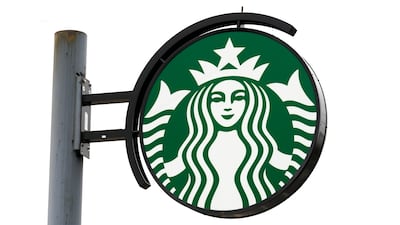Alshaya Group, the Middle East and North Africa operator of Starbucks, plans to lay off more than 2,000 workers after the business took a hit from consumer boycotts linked to the Gaza war.
The decision to reduce the company’s regional Starbucks workforce by about 18 per cent followed “challenging trading conditions” over the past six months, a representative told The National.
“We have taken the sad and very difficult decision to reduce the number of colleagues in our Starbucks Mena stores,” the representative added.
Alshaya Group, founded in Kuwait, has been the licensed franchise partner for Starbucks in Mena for more than 25 years, operating more than 1,300 coffee shops and employing 11,000 workers.
“We are committed to the region, and we look forward to continuing to grow our business for many more years serving our customers,” the company said.
In January, Starbucks cut its full-year 2024 sales growth forecast after its first quarter earnings missed market expectations.
“First, we saw a negative impact to our business in the Middle East. Second, events in the Middle East also had an impact in the US, driven by misperceptions about our position,” Laxman Narasimhan, chief executive of Starbucks, said.
The coffee chain sparked outrage last year when it sued US union Starbucks Workers United over a social media post in support of Palestine.
“Starbucks has been actively countering misinformation about its involvement in political matters,” Yusuf Mansawala, chief market analyst at CPT Markets, told The National on Wednesday.
“It's important to note that Starbucks is not the only brand targeted by activists during this war. The situation remains complex and sensitive, affecting businesses and individuals alike,” he added.

Several American brands are facing consumer boycotts amid allegations of their support for Israel.
Israel's response to the October 7 Hamas attacks has so far killed more than 30,700 Palestinians and wounded at least 72,000.
McDonald’s has said that “several markets” across the Middle East were experiencing a “meaningful business impact” due to the war and “associated misinformation”.
The company's sales fell short of investor projections in the fourth quarter, with growth slowing down, partly due to the impact of the Middle East conflict.
The restaurant chain operator’s comparable sales, a vital metric for the industry, increased by 3.4 per cent during the period, marking the slowest growth since the fourth quarter of 2020.
Geopolitical controversies highlight the complex relationship between business, politics, and social activism, underscoring the need for companies to carefully navigate their operations in “politically sensitive areas”, Arun John, chief market analyst at Century Financial told The National.

